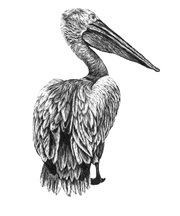I just received this from the Greens
Bush’s day of shame
Today’s onslaught on an impoverished country by the world’s biggest military superpower is a black day for humanity, Green Foreign Affairs spokesperson Keith Locke said today.
‘This is an unjust, illegal and immoral act of aggression,’ said Mr Locke. ‘There is no basis under international law for the invasion of Iraq and there is no UN mandate that grants any shred of legitimacy to this action.
‘The norms that govern international affairs have been fatally breached today and the authority that the United Nations has worked so hard to develop over the last 50 years has suffered a grievous setback.
‘Our thoughts are with the innocent men, women and children of Iraq. Having suffered a decade of unfair sanctions they are now bearing the brunt of a massive assault on their cities and towns.
‘We must continue to do everything to stop this war. Our government should move to call the UN General Assembly into urgent session, as it can do under the provisions of Resolution 377.
‘Green MPs will be participating in protest actions which will take place across the country,’ Keith Locke said. ‘I will be at the emergency protest to take place at Wellington’s Cenotaph at 5pm tonight.
‘We must challenge this unilateral use of brute force in international relations. It is such an affront to humanity, when there was so clearly another way of dealing with the Iraq crisis. The inspections were making progress and the United Nations engaged.
‘Unfortunately, the ramifications of this invasion will reverberate through the region and through the world for some time come.’
ENDS
You have received this because your contact details are on the Green Party mailing list as interested in Defence, Foreign Affairs, or Peace.
To unsubscribe, reply to this email address with “Remove” in the subject line.
Greens in NZ have had a very strong and clear position on this war all the way through. I hope they can maintain it as Labour has such trouble, constantly wavering on the edge. Worse than that actually having a ship in the Gulf and probably counted as one of the unamed of the 35 countries the Americans keep mentioning, because we support them trhrough having their military bases in this country. Get them out of here!





